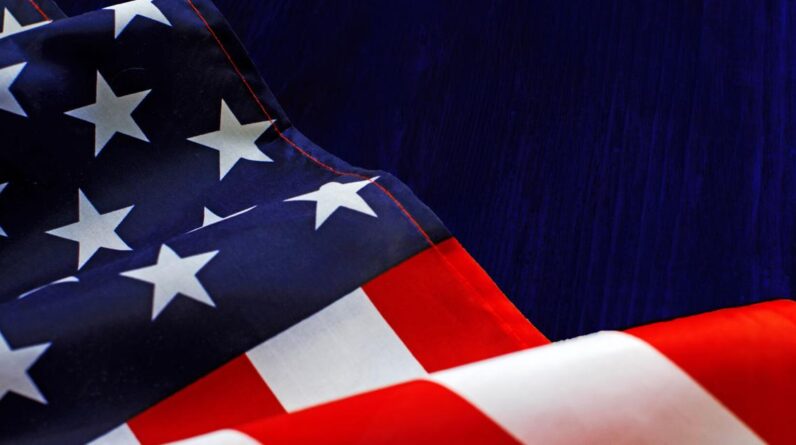
“With freedom and justice for all.”
Thus ends our pledge of allegiance. As a statement of aspiration, it shines. As a description of the nation’s condition, it burns a little less brightly.
First, it must be recognized that neither freedom nor justice has ever been distributed equally. Some Americans have enjoyed some for much longer than others.
In many ways, this gap has narrowed appreciably with racial healing and greater acceptance of personal choices, although there is still a long way to go. Although in other ways, the gap has grown with the acceleration of the division of wealth.
It has long come to my attention that our two political parties approach this formulation of “liberty and justice” as an “either-or” proposition. This conjunction, the “and”, which unites the two virtues, is lost.
In its current construction, the Republicans are the party of freedom and the Democrats the party of justice. Of course, this is not absolute and exceptions can often be found. But think about where each party places emphasis.
For Republicans, it’s about opportunity, initiative, enterprise, motivation, less government meddling, and allowing people to keep the fruits of their labor. Add that and it means freedom.
Democrats, on the other hand, prioritize leveling the playing field, lifting those lowest on the ladder, trusting government to an expansive role, and demanding that those who prosper pay more of the burden. Whether the goal is equality or equity in more modern parlance, it is an agenda centered on justice.
Look at the policies that each party follows. As a general rule, Republicans seek lower taxes, even for those in higher brackets. They advocate less regulatory interference, work requirements for public assistance, and school choice that empowers parents and promotes competition.
Democrats scorn such work requirements, advocate more progressive taxation, and generally favor a more activist role for government regulation.
One is the celebration of the entrepreneur, the self-made man and the idea of bootstraps. The other represents the safety net, the so-called common man and the collective.
Undoubtedly, contradictions abound. Too many Republicans resist liberty and freedom for those with different lifestyles and social mores. Many Democrats rely excessively on the supposed best and brightest to exercise inordinate control over agencies far removed from any political accountability.
As the parties have redefined themselves, the Republicans, the party of long-time fighters and those who did, increasingly represent a group of people who struggle and feel left behind. By contrast, Democrats, historically the champions of the forgotten, are now a comprehensive collection of those at the top and bottom of the income ladder. They are both the party of Silicon Valley and downtown Baltimore.
And, to be clear, both libertarians and justices are more than happy to stick future generations with the tab for today’s gluttonous spending. How nice that there is something that unites the parties.
Let me say that there is another remarkable commonality between the two parties and two ideologies these days. This shared characteristic, unbecoming of both, is a growing illiberalism.
Both parties in the current era are much more ideologically pure, monolithic and bordering on the extreme than they have been for a long time. As the country has sorted itself into rival red and blue teams, the moderate Republican and the conservative Democrat have for all practical purposes become extinct.
The likes of Susan Collins, Lisa Murkowski and Joe Manchin are now noted for their rarity. They should be added to the list of endangered species.
The result of this classification is that the epicenter of the Republican Party has shifted strongly to the right and that of the Democratic Party has moved clearly to the left. Neither party represents anything resembling a big ideological tent.
In both poles, ideological rigidity and conformism have generated insularity and intolerance that serve neither the interests of freedom nor justice.
look around On the right, book bans are all the rage and only a sanitized version of history can be taught. Drag queens have emerged as a deadly threat. To say nothing of the fundamental illiberalism of refusing to recognize or honor the results of an election.
But the left, once heralded as beacons of live-and-let-live acceptance, is more than a party in these narrow-minded, dogmatic Olympics.
Years ago bastions of free speech, universities are now anything but. Speech codes proliferate. Obnoxious speakers are not invited or called out. Slavery has replaced independence as the fundamental doctrine of the country. Teachers are ridiculed or, worse, fired for venturing unorthodox thinking. On and off campus, religious beliefs are frowned upon. Anything less than full adherence to politically correct norms cannot stand.
The left-wing high priests of a supposed tolerance no longer preach that old catechism.
All over the world, autocrats are on the move. Here at home, many on both political extremes display instincts all too common to these authoritarians.
Of course, there are countless millions around the political center who reject both extremes and defend quaint ideals of moderation and free speech. However, unfortunately they live quieter lives often away from the political noise and do not provide the system with its juice and animation.
What little there is that connects the defenders of freedom on the right and the seekers of justice on the left is a mutual intolerance. Those in both camps are increasingly defined by their tribal identity. The strongest element of this affiliation is an undisguised hatred of those on the other side, along with an inclination to silence rather than engage them.
Consider the Pledge of Allegiance. What immediately precedes the final principles of “liberty and justice?”
This previous word is “indivisible”. I wish it were so.
Eric Sondermann is an independent political commentator based in Colorado. He writes regularly for Colorado Politics and The Gazette. It comes to him a[email protected]; follow him to @EricSondermann
[ad_2]
Source link





